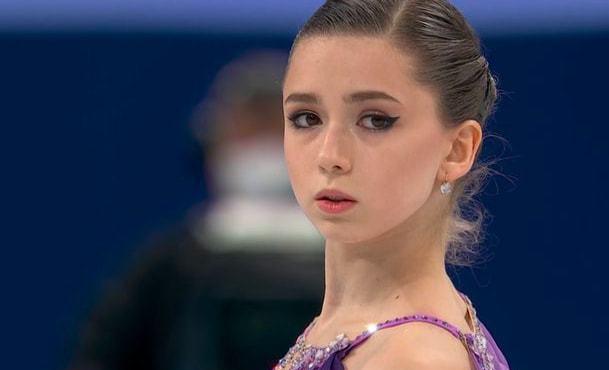The Beijing Winter Olympics have entered the end, and the much-anticipated figure skating women's single skating will also usher in the final competition on the evening of the 17th. In the previous short program, the Russian genius girl Vallieva, in the case of a mistake in the opening, still scored 82.16 points, ranking first among all the contestants. If nothing else, no one could see her taillights. That is to say, it is only a matter of time before K Bao wins the gold medal in women's singles. However, one of the IOC's moves has caused great controversy.

The IOC has made it clear that if Vallieva finishes in the top three in women's singles, the ceremony will be cancelled. In other words, even if K Bao really wins the championship, then she will not be able to claim her own gold medal.
The IOC's decision can be said to have caused great controversy. So why did the IOC do this?
In fact, this is related to the previous drug ban storm involving Vallieva. After the figure skating team match on February 8, Valieva was caught up in the public opinion of drug-related. It is reported that K Bao underwent a drug test on December 25 last year, and the results of the test showed that K Bao took prohibited items. Coincidentally, the test results were announced on the 8th, which directly led to the postponement of the award ceremony of the team competition, because the champion of the team competition was the Russian team, and K Bao was a member of the Russian team.
After Kbao tested positive, the Russian anti-doping agency briefly banned her, but within 24 hours, Kbao was released and she qualified for the individual competition. Although K Bao gave an explanation of "misusing Grandpa's cup when drinking water, he just took Grandpa's medicine" for taking his own banned drugs. However, the IOC did not buy it.
The IOC, together with the International Skating Federation and the World Anti-Doping Agency, appealed to the International Court of Arbitration for Sport to reinstate Vallieva's ban. But in the end, such an appeal failed, which also meant that Valieva could compete in the women's singles event.
This decision of the International Court of Arbitration for Sport directly annoyed the International Olympic Committee, which announced that if Vallieva won the top three places in the women's singles, there would be no award ceremony for her. As soon as such a decision was made, it can be said that it caused great controversy. Not to mention the impact on Vallieva, which is obviously unfair to the other winners. People are desperately trying to get medals, so why not let people get on the podium?
It is worth mentioning that according to domestic reporters, if K Bao enters the top three, not only can not receive medals, but even the ice piers are not! Moreover, although the Russian team won the team gold medal before, because the award ceremony was not held, everyone could not get the ice pier.
As we all know, the ice pier is now described as "difficult to buy", and even the athletes can only get the top three, such as Gu Ailing, Gao Tingyu, Liu Shaolin and other people, all of whom cherish the ice pier. However, because of Vallieva's drug test problem, even the athletes now do not give ice piers, which is a pity and regret!